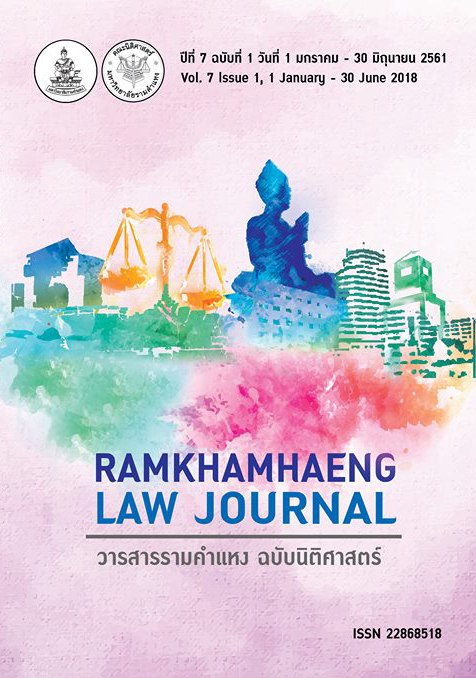Dealing with the Problem of Mortgage and Pledge over the Same Property
Main Article Content
Abstract
Mortgage and pledge are secured contracts that are created by an agreement between a creditor and the owner of a property in order to establish a legal effect that binds such property as security for a loan. This guarantees that payment will be made out of the property if the debtor fails to perform on the contract. There are some objects of mortgage that are also subject to pledge. These are items that are known as special movable properties. In other words, special movable properties may be subject to either mortgage or pledge. As a result, the following questions are raised: 1) Can we make contracts of mortgage and pledge over the same property? 2) What will happen if someone mortgages his car and subsequently pledges it in a separate contract? 3) Can this be done in the opposite order? 4) What are the legal effects to the parties? 5) Who is afforded preferential rights? Laws concerning these contracts are provided in the Civil and Commercial Code of Thailand, but, none of them deal with these problems.
This article will describe the principals of mortgage and pledge in Thailand and discuss the various ways in which the contracts bind the parties. In addition, this article will clarify the legal primacy where there are conflicting mortgage and pledge obligations. In particular it will examine the problems that occur after the securing of overlapping mortgage and pledge contracts over the same property. Lastly, I will suggest solutions together with proposed bills to cope with these problems and offer a conclusion as to which one is the best result.
Article Details
References
Nolan, Joseph R. and M., j. Conoly. Black’s Law Dictionary Special Deluxe. 5th ed. St. Paul, Minn.: West, 1979.
Panya Tanomrod. Civil and Commercial Code of Thailand on Loans, Suretyship, Mortgage, and Pledge. 5th ed. Bangkok: Institution of Legal Education of the Thai Bar, 2008.
Spranking, John G. The International Law of Property. Oxford: Oxford University Press, 2014.
Constitution of the Kingdom of Thailand B.E. 2560 (A.D. 2017).

